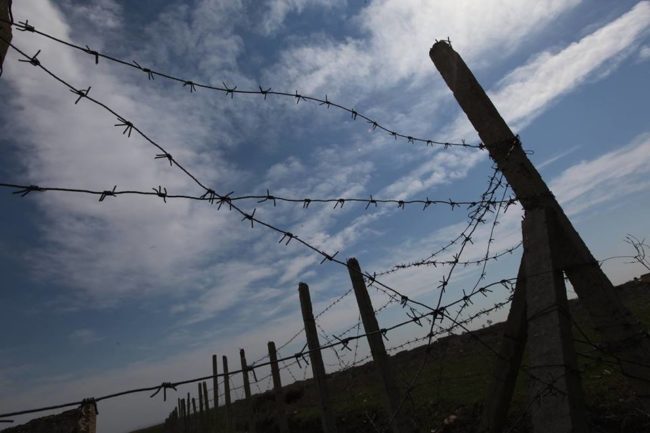

 A soldier from the Nagorno-Karabakh Defence Army, Vazgen Poghosyan, was killed by shelling from Azerbaijan on 10 July, the Defence Ministry of Nagorno-Karabakh has said.
A soldier from the Nagorno-Karabakh Defence Army, Vazgen Poghosyan, was killed by shelling from Azerbaijan on 10 July, the Defence Ministry of Nagorno-Karabakh has said.
According to the ministry, Vazgen Poghosyan, 20, ‘received a deadly wound’ at about 17:40 local time ‘as a result of a violation of the ceasefire from the Azerbaijani side’.
‘The incident occurred at the east of the line of contact between Karabakh and Azerbaijani armed forces, an investigation is being conducted to find out the details’, a Defence Ministry spokesperson told Caucasian Knot.
Azerbaijan’s Ministry of Defence has not made a statement about the incident yet, but accused Armenia in an 11 July statement of ‘violating the ceasefire 133 times throughout the day’.
Nagorno-Karabakh also accused Azerbaijan of ‘violating the ceasefire 300 times’ from 2–8 July, Caucasian Knot reported.
Despite the ceasefire agreement brokered after the conflict escalated in April 2016, shellings over the line of contact have not ceased for more than a year.
On 4 July, two civilians were killed and one injured in Azerbaijan after an exchange of fire. According to a statement from Nagorno-Karabakh’s Ministry of Defence, Azerbaijan first opened fire from a position in the village of Alkhanli in the evening of 4 July, which ‘forced [Nagorno-Karabakh’s army] to resort to retaliatory actions’.
The OSCE Minsk Group, who have been mediating the conflict since 1992, said they had received information of renewed violence and urged all sides to cease military action on 5 July, claiming that ‘violence only begets further violence and accomplishes nothing’.
A recent report from the International Crisis Group — an independent peacebuilding group active in Nagorno-Karabakh — concluded in June that Armenia and Azerbaijan are now closer to a full-scale war than at any point since the two countries signed a ceasefire in 1994.
For ease of reading, we choose not to use qualifiers such as ‘de facto’, ‘unrecognised’, or ‘partially recognised’ when discussing institutions or political positions within Abkhazia, Nagorno-Karabakh, and South Ossetia. This does not imply a position on their status.









